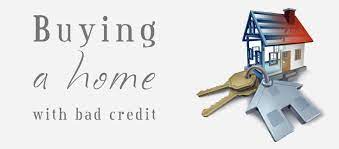Choosing real estate properties to add to your portfolio is just as crucial as using the right software for commercial real estate investment. Many investors benefit from software by gaining deep insights into their business performance, both offline and online, generating strong reports, enhancing efficiency, and measuring gains and losses.
While there are software programs for landlords to assist them with property management as well as database software for real estate information management, there is also software specifically designed for selecting and analysis of the most profitable rental property investment based on key financial metrics. In this article, we’ll show you how to choose the best real estate investor software for your specific business needs.
Best Real Estate Management Investment Software
#1. RealData
RealData is a strong excel-based real estate investment management and development software. It works best for both small and large portfolios. RealData allows you to rapidly decide whether a property is worth investing in. Furthermore, it provides many extra calculators and real estate deal analyzers to improve the business process. Reports and presentations are two of RealData’s most important capabilities. Investors might build detailed presentations to entice potential lenders and investors.
Features
- Effective commercial income module
- Advanced features and a partnership module
- Analysis of Cashflow and Resale
Pros
- It includes extensive program hosting features in a single bundle.
- It provides a variety of possibilities for investors of various sizes.
Cons
- There are only a few security elements.
#2. Analyst Pro
The Analyst Pro is the best commercial real estate investment analysis and management software. It satisfies user needs and represents the most essential information for analyzing your business’s future expectations. While it allows you to use its power on any device, it charges a yearly price rather than a one-time fee. It has some of the most sophisticated reporting and analytical features available.
Features
- Commercial real estate tools and ratings
- Location risk assessment
- Calculator for mortgages
- Calculator for 1031 exchanges
Pros
- It includes a variety of management features.
- It creates exact reports that accurately depict the investment potential.
Cons
- It is pricey when compared to other tools on the market.
#3. Argus
Argus is a comprehensive real estate investment software that aims to improve business management. It has the potential to forecast future trends in the real estate market, which is quite useful. Furthermore, it provides insights into the influence of macroeconomic changes. This allows real estate investors and managers to make informed decisions in real-time. It allows different teams to collaborate because it is enterprise-level real estate software that provides data sharing and collaboration functions.
Features
- Valuations and cash flow projections
- Risk and scenario analysis
- Strategic planning and budgeting
- Tools for Investment and Fund Management
Pros
- It makes accurate predictions about business trends.
- It has a simple and user-friendly UI.
Cons
- Some users express security worries.
#4. ProAPod
For real estate investors, ProAPod is the best investment analysis software. It is designed in such a way that investors may quickly construct complete cash flows, examine earnings and rates of return, and generate marketing reports. ProAPod software analyzes commercial real estate investment and multifamily properties using various analysis techniques while keeping up with dynamic marketing trends.
Features
- Calculator for Cap Rates
- Analysis of cash flow and resale
- A comparison of leasing and purchasing (for commercial properties)
- Annual and monthly return on investment
Pros
- It quickly generates detailed paperwork for financial estimates on your investment.
- It easily adapts to changing marketing trends.
Cons
- Only individual investors can gain from it.
#5. CREmodel
The commercial real estate model is the third most popular real estate investment management software on our list. It enables investors to take their real estate management to the next level. It transforms money management by providing a plethora of functions. This excel-based real estate investment software also assists investors in analysis of multifamily, retail space, office space, residential complexes, industrial assets, and various mixed-use investing projects.
Features
- Loan-to-Value Ratio (LTV)
- Analysis of cash flow and resale
- Annual and monthly return on investment
- Return on capital invested
Pros
- It is inexpensive, simple to use, and offers interactive tools.
- It offers a number of calculators to make the task of project investors easier.
Cons
- It is deficient in decision-making tools.
#6. DealMachine
If you’re interested in locating off-market offers, DealMachine is the solution for you. It is a real estate investment software that gives information on any property. All DealMachine requires is that you enter the address or upload a snapshot of the property directly from your phone. It will immediately provide you with information such as the property owner’s purchase date and price, the approximate equity of the property, and more.
Features
- Owner lookup software
- Campaigns by direct mail
- Management of real estate leads
Pros
- It allows you to obtain property owner information in a matter of seconds.
- It relieves real estate investors of the time-consuming processes of manual research and mailing.
Cons
- It has a fairly expensive subscription price.
#7. RealNex
RealNex is the best real estate investment customer relationship management software for producing the best outcomes by combining real estate analytics with Customer Relationship Management software. It combines all of the powerful tools for marketing, lead management, and analytics into one platform. Furthermore, it is compatible with Mac, Windows, and mobile devices. Real estate investors in medium-to-large-sized businesses can make use of its advantages.
Features
- Tools for deal management
- Investment and lease comparison study
- Gmail and Outlook connection are seamless.
- Financial evaluation
Pros
- It has great CRM, marketing, analytics, property prospecting, and workflow management capabilities.
- It enables you to tailor the fields to your specific requirements.
Cons
- Users frequently experience problems with live sync.
#8. Valuate
This is the best multifamily real estate investment software. It is primarily utilized for rental and fix-and-flip houses. It provides end-to-end functionality for the entire real estate life cycle. Valuate includes analysis and computations from the initial purchase to improvements, refinancing, and property sale.
Features
- Calculator for the cap rate
- Returns on capital invested
- Analysis of cash flow and resale
- Annual and monthly return on investment
Pros
- It gives decision-making tools to assist investors in making informed judgments.
- When there isn’t a decent deal to be had on the property, it displays a pop-up alert.
Cons
- It is solely for deal analysis and does not include any presentation or marketing aspects.
#9. PropertyMetrics
PropertyMetrics is commercial real estate investment analysis software. It is intended to assist investors in creating and sharing a proforma for income-producing assets. Unlike traditional real estate software solutions, it provides 100% web-based services. One of its products also aids in the creation of real estate documents such as memos, flyers, brochures, case studies, proposals, and other materials.
Features
- Formal platform
- Property forecasting and analytics
- Creating real estate documents
- The cap rate
Pros
- It allows you to create and exchange commercial real estate data.
- It aids in the analysis of the income flow from commercial assets.
Cons
- It makes no mention of any decision-making instruments.
#10. Rehab Valuator
This commercial real estate investment software is designed for wholesalers, rehabbers, and house flippers. With their tools, you may calculate offers and bargains. Furthermore, you may use it to quickly raise cash and create a real estate flyer template or presentation. The premium account of Rehab Valuator includes contracts and real estate forms for investors.
Features
- Calculator for Maximum Offer
- Analyses work scope
- Report creation
- Analysis of the transaction
Pros
- It provides a calculator to assist you in determining the maximum price.
- It has a free option.
Cons
- Its higher alternatives are somewhat pricey.
What is a Real Estate Investment Software?
Real estate investor software is used to assess the potential financial performance of a rental property as well as to track the income and expenses, cash flow, and net income of assets at the property and portfolio levels.
Choosing the best real estate investor software for your business might mean the difference between a property just breaking even and one that generates steady, positive cash flow year after year.
What to Look for in a Great Real Estate Investment Tool
The best real estate investor software for one property owner may not be the best option for another. Property kinds differ, as do investment techniques. With that in mind, consider the following qualities while considering real estate investment software:
- The system is adaptable enough to manage a wide range of property types, including single-family houses, modest multifamily units, and short-term rentals.
- Real estate investment software that will assist you in scaling up and growing your rental property business.
- Ease of use on a desktop or laptop, tablet, or using Android or Apple smartphone app.
- Capability to track asset performance at the property and portfolio levels.
- Making a paper trail for income and expenses.
- Upload, organize, and keep all rental property documentation online.
- To enter rental property, connect accounts, run financial reports, and view property and portfolio level reports from a single dashboard, there is little to no learning curve.
- Export tax-ready financial statements to expedite and simplify year-end reporting.
- The best security in the business is to secure personal data that is never shared with a third party.
- Cost-effective and devoid of complicated features that the majority of rental property investors never use.
- Customer care is responsive, with the option of contacting a live person by phone, email, or even Twitter.
Should You Use High-tech Software as an Investor?
It is possible to manage one or two rental homes using a laptop and spreadsheet, but it is not the most efficient or professional method to work in today’s competitive environment.
The majority of renters are under the age of 35, according to the Federal Reserve Bank. These are tenants who grew up with the internet and expect landlords to be as technologically adept as they are.
Innovative real estate investor software solutions available today assist you in scaling up and growing your rental property business by:
- Providing internet listing and marketing solutions
- Processing rental applications, credit checks, and background checks
- Rent collection and vendor payment
- Analyzing potential real estate transactions
- Maintaining a close eye on the financial performance of your complete real estate portfolio
- You can streamline your processes, enhance revenues, and track the performance of your rental properties down to the last cent by selecting the best investor software for your business.
How to Select the Best Real Estate Investment Software
Real estate investing software comes in a variety of shapes and sizes.
There is literally an investment software package for every investor, ranging from a simple spreadsheet solution to an all-in-one package like Avail and Propertyware, which is built for handling more than 250 single-family rental houses.
Important questions to ask before making a purchase
Begin by asking yourself these key questions while selecting the best real estate investor software for your individual needs:
- What are your plans for the software?
- How effective is your present system?
- What areas do you want to improve your efficiency in?
- Do you prefer to be hands-on or do you wish to automate as much as possible?
- Do you want a mobile app, a desktop application, a cloud-based solution, or all of the above?
Choosing the Best Software for Your Needs
Once you’ve determined what you’re looking for, reduce your choices by comparing and contrasting each alternative:
- Annualized return, cap rate, gross yield, and cash flow are all financial performance analysis techniques.
- Pricing structures include flat fees, unit pricing, and tiered levels and bundles.
- Demonstration of the entire software bundle so you may try it before you buy it
- Customer care and support alternatives after the sale, such as 24/7 phone support, email, and an online help desk with a guaranteed response time
- Modules for creating marketing and presentation materials for investors, lenders, and tenants
Do Real Estate Apps for Investing Really Work?
Yes, but just like any investment, there are benefits and drawbacks to crowdfunded real estate apps. Investment opportunities usually carry some risk, therefore you should always aim to diversify your portfolio. By decreasing the entry barrier and granting you access to more chances than you would have on your own, investment apps can assist in making investing simpler.
The success of a real estate investing app is not guaranteed. The Securities and Exchange Commission’s assessment of an investment does not guarantee a profitable outcome. However, it does contribute to the prevention of fraud, and the real estate applications mentioned above have a positive reputation in the sector.
What Is Good ROI?
A good ROI is a matter of opinion and is influenced by the investment’s risk and time frame.
One person may think that a 5% return on a safe short-term investment is ideal, but another may prefer an 8–10% return with more risk and a longer time commitment. Returns on real estate investments vary along with real estate valuations and prices. The ROI that is best for you should be higher than the ROI you could obtain from other comparable investments and meet your own needs.
While some investors want higher risk and greater ROI, others favor higher risk and lower potential profits.
How Do I Start Investing in Property With Little Money?
Most people believe that investing in real estate, even fixer-uppers, requires a large sum of money. However, using a real estate app to invest in real estate allows you to crowdfund with hundreds of other investors, negating the need for a sizable initial investment.
Finding an investment that meets the minimum investment criteria, fits your investment style, and invests in real estate that interests you is the key. Equity real estate investments typically have larger growth potential, but debt investments typically have higher income returns.
Is Real Estate a Good Investment?
Typically, investing in real estate offers considerable tax benefits, cash flow, inflation protection, and value appreciation. However, no investment is risk-free; much like the stock market, real estate prices can fall as well. As far as you can, protect your real estate investments by diversifying your portfolio.
Who Should Use Rental Property Management Software?
Rental property management software is available to new investors with modest rental portfolios (less than 10 units) and too big commercial property management companies. Software with specialized features is produced by various businesses, and it is best suited for particular types of landlords, types of properties, and portfolio sizes. These tools can be helpful to a DIY investor as well as to a group of users that includes, for example, an owner, a property manager, a facility manager, and a leasing agency.
How Much Does Rental Property Management Software Cost?
The majority of property management software packages charge $1 to $2 for each managed unit. It’s crucial to keep in mind that, even if you don’t have enough properties to justify such a large fee, the majority of providers will charge you a monthly minimum fee, typically in the $200 to $250 area, while you’re looking for a program. In contrast to the majority of programs, TurboTenant shifts the costs of its operations to the tenants.
What Apps Do Landlords Use?
There are numerous smartphone apps for property management on the market. Finding the best one to utilize as a landlord will depend on a number of variables, including your budget, the sort of tenants and buildings you have, and the number of units in your portfolio. Buildium and Appfolio are two well-liked examples of mobile apps linked to property management software systems.
Does the IRS Receive Reports of Rental Income?
Yes. The Internal Revenue Service (IRS) requires you to record rental income on your taxes. You should declare any single-family home, apartment, condominium, mobile home, holiday home, or comparable structure that is utilized to make money on your taxes.
Conclusion
Rental property investors utilize real estate investor software to research potential deals, monitor the performance of income-producing real estate, and scale up and grow real estate portfolios of all shapes and sizes.
The best real estate investing software can manage single-family homes, multifamily properties, and short-term rentals. At the property and portfolio levels, you should be able to manage income and expenses, build a paper trail, and generate tax-ready financial reports.
While there are numerous software solutions available, many investors are pleasantly surprised to discover that the best real estate investor software is completely free.
Real Estate Investment Software FAQs
What website do real estate investors use?
- Stessa.
- Roofstock.
- BiggerPockets.
- SparkRental.
- Apartments.com.
- Craigslist.
- One Rental at a Time.
- Deal Machine.
How do I create a real estate investment website?
- Choose Your Domain Name.
- Installing Your Site & Choosing A Hosting Company.
- Choose A Nifty Design For Your Website.
- Fill Your Site With Content.
How do real estate developers find investors?
There are various ways to recruit real estate investors for a partnership, including bank financing, a real estate investment club, crowdfunding, your present personal or professional network, and online resources such as social media.
- BUYING A RENTAL PROPERTY: Tips on Buying a Rental Property (Updated 2023)
- How To Start a Real Estate Business: Step-by-step Beginners Guide
- BUYING RENTAL PROPERTY: Tips For Buying Rental Properties
- PROPERTY MANAGEMENT TOOLS: Uses, Free Tools & Pricing
- Top 10 Rental Management Software In 2023: Features & Reviews






